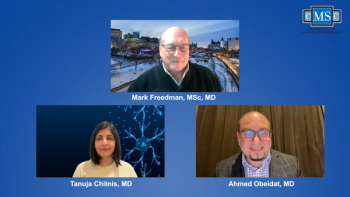
Mark Freedman, MD, MSc, Tanuja Chitnis, MD, and Ahmed Obeidat, MD, PhD, answer questions about biomarkers in MS care.
Assistant Professor, Department of Neurology, Neuroimmunology and Multiple Sclerosis; Director, Neuroimmunology and MS Fellowship Program, The Medical College of Wisconsin

Mark Freedman, MD, MSc, Tanuja Chitnis, MD, and Ahmed Obeidat, MD, PhD, answer questions about biomarkers in MS care.

Mark Freedman, MD, MSc, Tanuja Chitnis, MD, and Ahmed Obeidat, MD, PhD, discuss future directions in MS amid increasing advances in the field.

Mark Freedman, MD, MSc, Tanuja Chitnis, MD, and Ahmed Obeidat, MD, PhD, discuss the limitations of neurofilament light chain in identifying disease progression.

Mark Freedman, MD, MSc; Tanuja Chitnis, MD; and Ahmed Obeidat, MD, PhD, discusses the challenges associated with the cost of MRI and other important tools in the monitoring and assessment of MS.

Tanuja Chitnis, MD, discusses the CLIMB database and study to identify predictors of future disease and determine the effect of treatment on progressions and disability.

Mark Freedman, MD, MSc, Tanuja Chitnis, MD, and Ahmed Obeidat, MD, PhD, contextualize data from large studies regarding the utilization of neurofilament light chain.

Mark Freedman, MD, MSc, Tanuja Chitnis, MD, and Ahmed Obeidat, MD, PhD, discuss how use of biomarkers has affected understanding and assessment of lesion types.

Mark Freedman, MD, MSc, Tanuja Chitnis, MD, and Ahmed Obeidat, MD, PhD, review conditions under which they would assess treatment success for patients who have changed therapies.

Thought leaders explore treatment possibilities in patients with irregular NFL patterns.

Tanuja Chitnis, MD, shares possible course of action if NFL levels begin to rise during treatment.

Mark Freedman, MD, MSc, Tanuja Chitnis, MD, and Ahmed Obeidat, MD, PhD, raise important questions about the extent to which biomarkers can aid in patient care as well as their limitations.

Mark Freedman, MD, MSc, Tanuja Chitnis, MD, and Ahmed Obeidat, MD, PhD, talk about the practical use of biomarkers in treatment decision making.

Tanuja Chitnis, MD, explains how higher neurofilament light chain levels can signal disease activity in MS.

Ahmed Obeidat, MD, PhD, recounts the difficulties with MRI as a main biomarker for MS and shares strategies for optimal use of the technology.

Tanuja Chitnis, MD, discusses the use of ultra-sensitive assays to determine protein levels in the blood, which may aid in the diagnosis of MS.

Ahmed Obeidat, MD, PhD, considers utility of biomarkers in MS diagnosis, but he also noted that diagnosis remains clinical.

Mark Freedman, MD, MSc, Tanuja Chitnis, MD, and Ahmed Obeidat, MD, PhD, discuss the role of biomarkers and the key areas in which they will be used in managing day-to-day decisions in patient management.

Cognitive and other symptoms in multiple sclerosis can be invisible—meaning not readily observed in the individual. However, their impact on a patient’s life can be obvious.
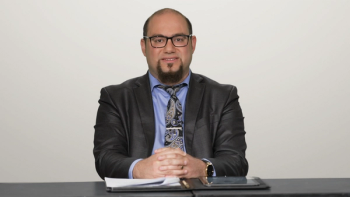
Ahmed Obeidat, MD, PhD; Benjamin Greenberg, MD; and Hesham Abboud, MD, share their hopes about the evolution of future mutiple sclerosis care and express their gratitude for the next generation of neurologists.
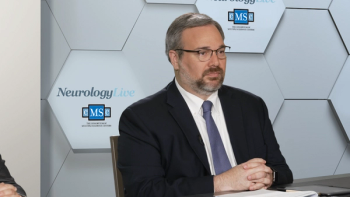
Drs Hesham Abboud and Benjamin Greenberg share their excitement for the future of multiple scelrosis treatment and comment on emerging therapies and novel mechanisms of action.
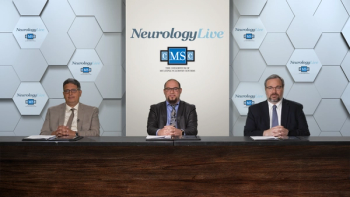
Ahmed Obeidat, MD, PhD; Benjamin Greenberg, MD; and Hesham Abboud, MD, discuss their future hopes and concerns for the use of BTK inhibitors in the treatment of multiple sclerosis.
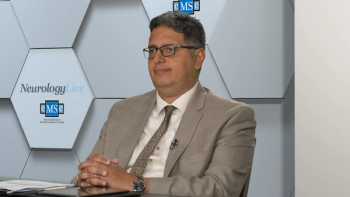
Drs Ahmed Obeidat, Hesham Abboud, and Benjamin Greenberg share their experiences with patient compliance and the route of administration of current and emerging therapies for multiple sclerosis.

Experts in neurology debate the utility of combination therapy in the management of multiple sclerosis and highlight current obstacles to this treatment approach both in clinical investigation and practice.

Ahmed Obeidat, MD, PhD; Benjamin Greenberg, MD; and Hesham Abboud, MD, comment on the need for more inclusive clinical trial patient enrollment criteria, highlighting underserved patient populations.

Dr Hesham Abboud shares his opinion on the clinical practicalities of BTKi utilization in patients with multiple sclerosis.
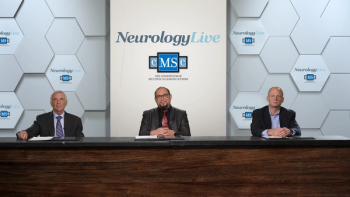
Ahmed Obeidat, MD, PhD; Randall Schapiro, MD, FAAN; and Jeffrey Wilken, PhD, share their hopes for the future of multiple sclerosis treatment and discuss unmet needs and novel targets.

Experts in neurology discuss practical considerations for the management of multiple sclerosis, tying in the importance of a collaborative care team and patient involvement.

Experts in neurology discuss safety concerns and considerations with the use of BTKis in the management of patients with multiple sclerosis.

Hesham Abboud, MD, provides insight into the impact of the differnet biochemical compositions of the currently investigated BTKis and highlights on-going clinical trials.
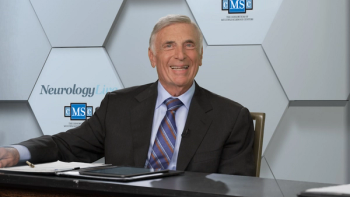
Randall Schapiro, MD, FAAN, and Jeffrey Wilken, PhD, examine the role that cognition and route of administration play in DMT selection in patients with multiple sclerosis.
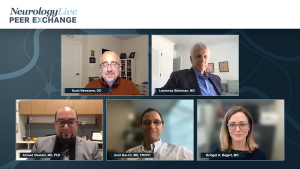
Published: August 4th 2022 | Updated:
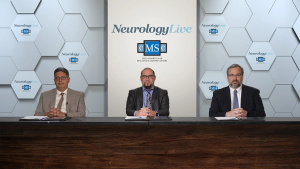
Published: August 22nd 2022 | Updated:
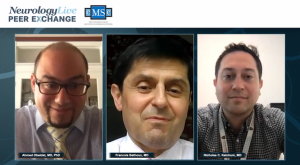
Published: July 22nd 2021 | Updated:
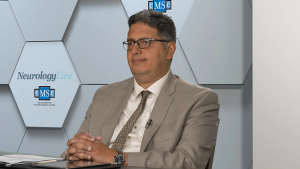
Published: September 12th 2022 | Updated:
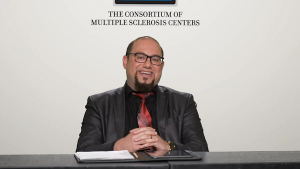
Published: August 8th 2022 | Updated:

Published: July 28th 2022 | Updated: